5フレーズ英語で伝える日本文化
お月見 Moon Viewing Festival
外国人に英語で説明しよう
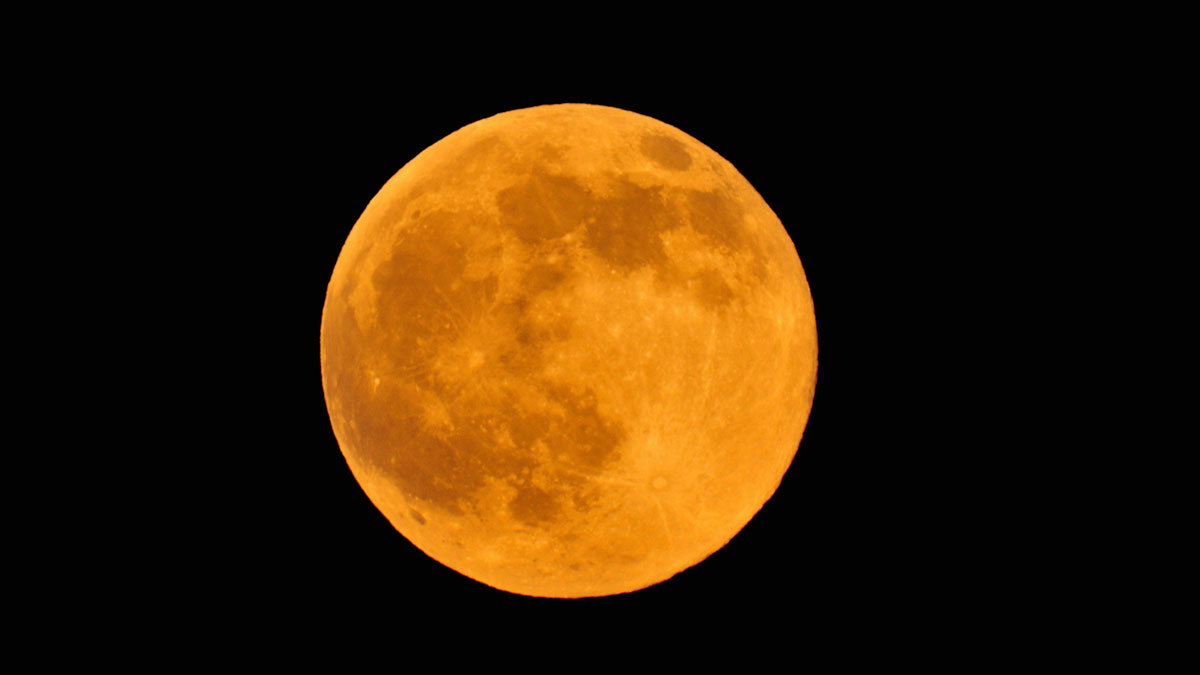
留学したり外国人の友だちと話していると、日本について聞かれて困ったり、日本について説明したいことってありますよね? 起源や単語を調べて…、なんて結構大変な作業です。5つの英語フレーズでまとめてみたので、ぜひ会話に役立てて、日本のことも知っておきましょう。
Japan is well known for its seasonal customs and events. One of the most popular events in autumn is Otsukimi.
日本には四季折々の風習や行事があります。秋を代表するものといえば、「お月見」です。
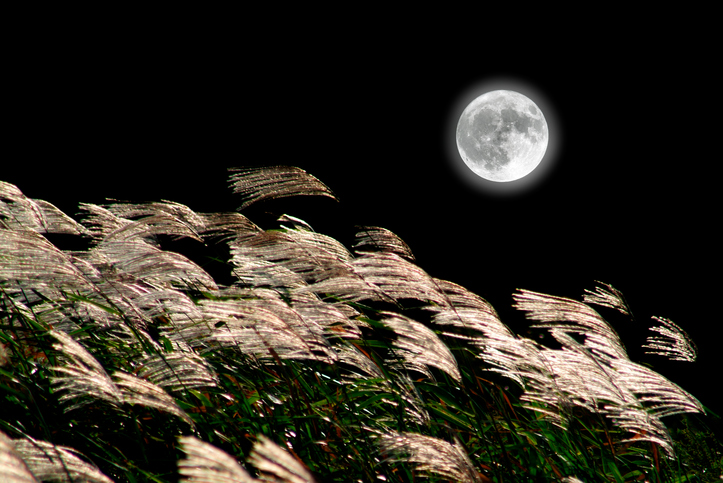
Otsukimi is also known as Jugoya (the 15th night); however, the actual date changes every year because it is determined by the traditional Japanese calendar; it typically falls on a full moon night around September 15th. This date corresponds to August 15th of the traditional Japanese calendar.
「十五夜」とも呼ばれることから、15日のことだと思っている人も多いと思われますが、お月見とは旧暦の8月15日(現在の9月15日)前後の満月の日のことを言います。そのため、その年によって日が異なります。
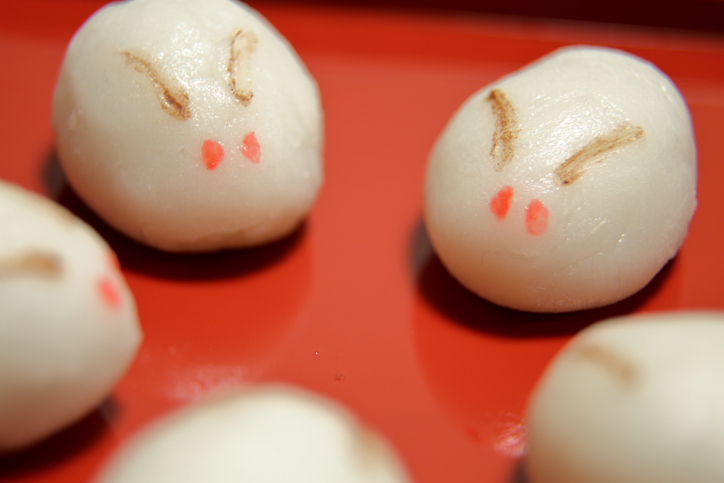
The moon of this day is called Jugoya (the 15th night), Imo-meigetsu (potato harvest moon), and Chushu-no-meigetsu (mid-autumn moon). Dango (rice dumplings), susuki (Japanese pampas grass), and seasonal food such as sweet potatoes are displayed as offerings when viewing the moon.
この日の月は「中秋の名月」、「十五夜」、「芋名月」と呼ばれ、お団子、ススキ、サトイモなどをお供えして月を眺めます。
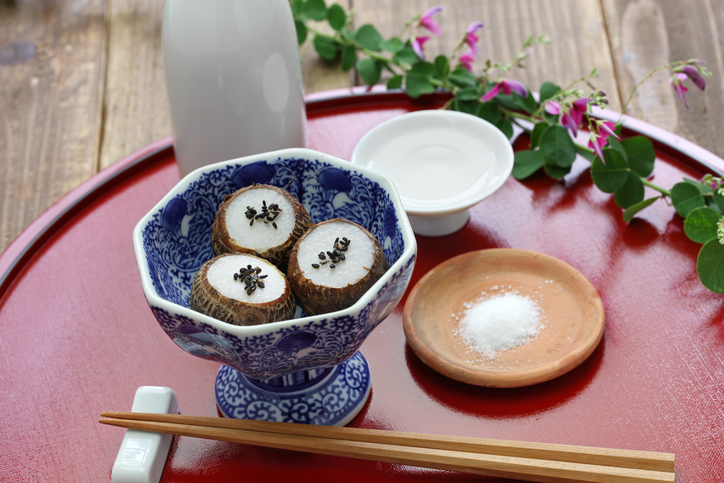
The tradition originally came from China. It first arrived in Japan during the Heian period. Japanese aristocrats gathered to recite poetry under the full moon of August 15th by the traditional Japanese calendar. Later it was spread further among common people. As it was held in the harvest season, it became an autumn thanksgiving event.
お月見は、元々中国から伝わってきた風習です。平安時代頃に、はじめは貴族たちがそれを取り入れ、月見の宴を催すようになりました。しだいに庶民に広がり、その時期が収穫と重なるため、秋の実りを感謝する行事となりました。
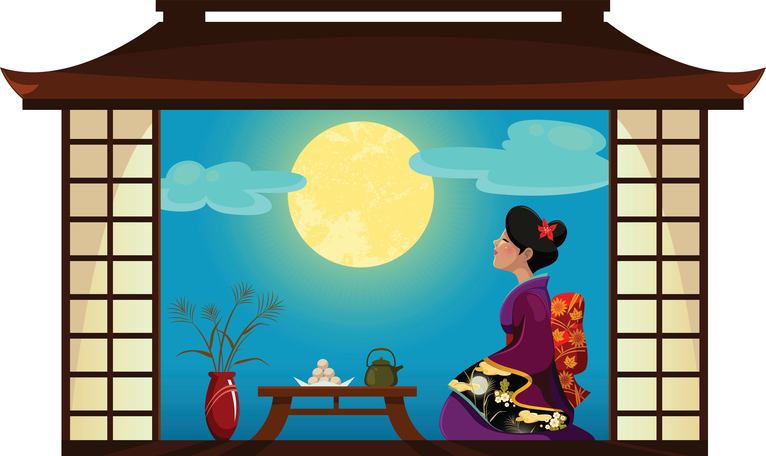
Each offering has a symbolic meaning. Round white dango symbolize the full moon; they are made from rice flour harvested at that time, therefore people offer them to express gratitude for a good harvest. Round shapes are regarded as an auspicious sign. It is believed that people can obtain happiness and health by eating dango.
お供えの一つ一つには意味があり、白くて丸いお団子は満月を表し、その時期収穫されるお米の粉で作ったことから収穫への感謝を込めてお供えします。また、丸い形は縁起が良いと言われているため、お団子を食べることで、健康や幸せを得られると信じられています。

Susuki symbolize Yorishiro, the object where the moon divine spirit resides. There is a saying that hangingused susuki from eaves prevents illness for a year, because people believe that these susuki can ward off evil spirits.
ススキは月の神様の依り代(神霊が依りつく物)としてお供えします。また、古くからススキは魔除けの力があると信じられており、お月見にお供えしたススキを軒先に吊るすと、一年間病気をしないという言い伝えもあります。
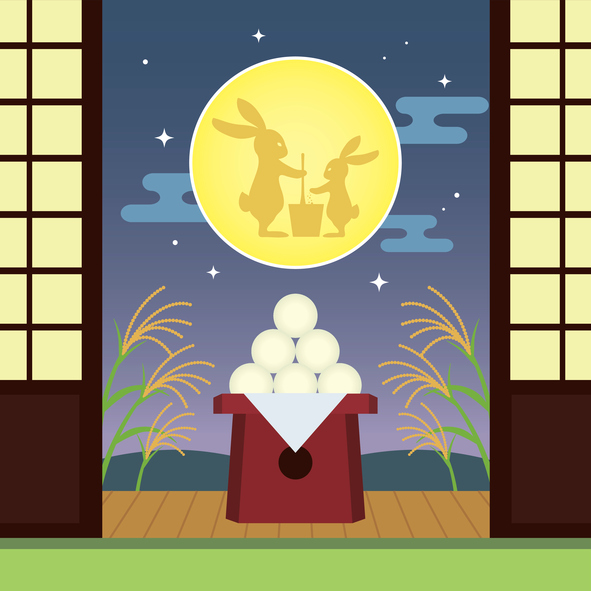
Potatoes are offered to express gratitude for a good harvest, because they are harvested at that time.
そして、イモ類は、特にその時期が収獲期のため、その年の実りの感謝の表れとしてお供えします。
ライタープロフィール●Oceantrade
旅行が大好きです。ドイツとオーストラリアで暮らした後、日本に帰国し、外国人向けの観光プロモーションの仕事をしながら、翻訳のフリーランスとして活動しています。夫の影響でダイビングを始め、さらに海好きになっています。これからも日本の良さを海外に発信していきたいです。



















